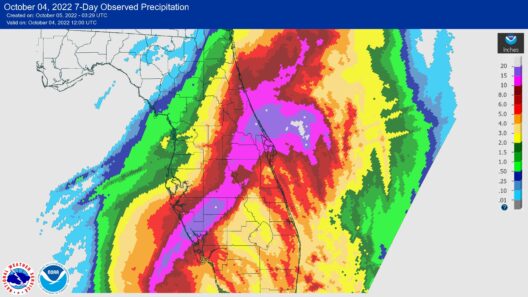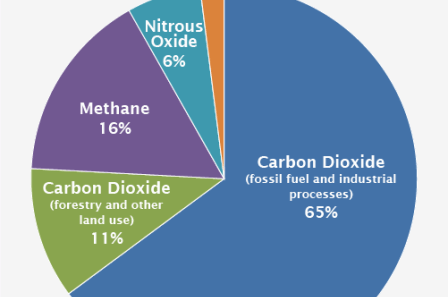Climate change has emerged as one of the most pressing dilemmas of our time. Its implications resonate across various facets of life—economically, socially, and ecologically. A common observation is the overwhelming sense of futility; many individuals grapple with the belief that climate change is indeed an inevitable trajectory of our planet’s future. However, this perspective warrants deeper examination. Can we, as a global society, still forge a path toward sustainability and avert the most catastrophic effects of climate change? The answer is complex but ultimately hinges on our collective actions today.
To address the inevitability of climate change, it is crucial to understand its fundamental causes. The burning of fossil fuels, deforestation, and industrial processes emit greenhouse gases such as carbon dioxide and methane into the atmosphere. These gases trap heat, leading to a gradual rise in global temperatures. The resulting alterations in weather patterns contribute to more frequent and severe climate phenomena: hurricanes, droughts, and wildfires have become stark reminders of a destabilized environment. Indeed, the scientific consensus stipulates that if emissions continue unabated, we will face a compelling scenario of dire consequences by the end of this century.
Yet, while the progression of climate change seems inexorable, it is imperative to delve into the multifaceted aspects of human agency. We possess the capacity to alter our trajectory significantly. Transitioning to renewable energy, promoting sustainability initiatives, and reshaping consumption patterns are pivotal measures that can mitigate climate risks. Nations around the globe are awakening to the reality of climate change, pooling resources towards cleaner energy systems such as solar, wind, and hydroelectric power. These alternatives not only promise a reduction in carbon emissions but also pave the way for economic revitalization through job creation in emerging green sectors.
Moreover, the allure of sustainable agriculture cannot be overlooked. Conventional farming practices contribute significantly to greenhouse gas emissions, yet innovative agriculture—encompassing organic farming, agroecology, and permaculture—profoundly alters this narrative. By improving soil health, these practices can sequester carbon, reduce dependency on chemical fertilizers, and enhance biodiversity. Communities that adopt such methods often witness enhanced resilience to climate-induced stresses, illuminating the practical benefits of eco-conscious efforts.
Urban planning, too, embodies a critical vector for addressing climate change. The rapid urbanization of the world’s population brings forth challenges, but it also presents opportunities. Designing cities to be more sustainable—through enhanced public transportation systems, green spaces, and energy-efficient buildings—can drastically reduce emissions. Forward-thinking urban policies and international coalitions can expedite global efforts to combat climate change and promote social equity. The implementation of initiatives like the Paris Agreement exemplifies a collective commitment to reduce global temperatures, reinforcing the notion that collaborative action possesses the power to enact change.
Additionally, public awareness and education play pivotal roles in redefining our relationship with the environment. Grassroots movements and nonprofit organizations are instrumental in galvanizing communities to engage in climate action. Increased education around environmental issues fosters a culture of responsibility, urging individuals to reflect on their ecological footprints. Whether through advocacy, conservation efforts, or everyday choices, informed citizens can collectively exert pressure on governments and corporations alike to prioritize sustainability.
Conversely, apprehension regarding the potential ineffectiveness of individual actions can inhibit progress. While it is undeniable that systemic change is crucial, each effort matters—no matter how incremental it may appear. Individual choices, such as reducing meat consumption, utilizing public transport, or supporting local businesses, can aggregate to foster significant cultural shifts. These small yet essential acts create a ripple effect, inspiring others and catalyzing larger movements aimed at addressing climate challenges.
Nevertheless, it is vital to acknowledge the socio-economic disparities that shape climate vulnerability. Marginalized communities bear the brunt of climate change impacts, often experiencing the most severe consequences due to systemic inequalities. Climate justice emerges as a critical concept here, emphasizing the need for equitable solutions that integrate the voices of those disproportionately affected. By addressing the interconnectedness of social equity and climate action, a more inclusive framework can be established, paving the way for holistic and sustainable responses.
Beyond political and economic spheres, the role of technology cannot be overstated. Innovations in carbon capture, energy storage, and smart grid systems hold immense promise. Advancements in artificial intelligence and data analytics are enhancing our understanding of climate dynamics, enabling more informed decision-making. Such breakthroughs have the potential to reshape practices across various sectors, making it possible to optimize resource use and minimize environmental impact.
In conclusion, while climate change presents an alarming and inevitable challenge, the notion that we are powerless against it is fundamentally flawed. Humanity still has the agency to make deliberate choices that influence our environmental trajectory. Through a concerted global effort encompassing renewable energy adoption, sustainable agricultural practices, equitable urban planning, enhanced education, and technological innovation, mitigation of climate change is not merely a distant hope, but a tangible possibility. The path forward may be fraught with complexities, but it is one that can lead to a more resilient and sustainable world for future generations. The question is not whether we can make a difference; it is whether we are willing to act decisively and collectively in the face of adversity.








